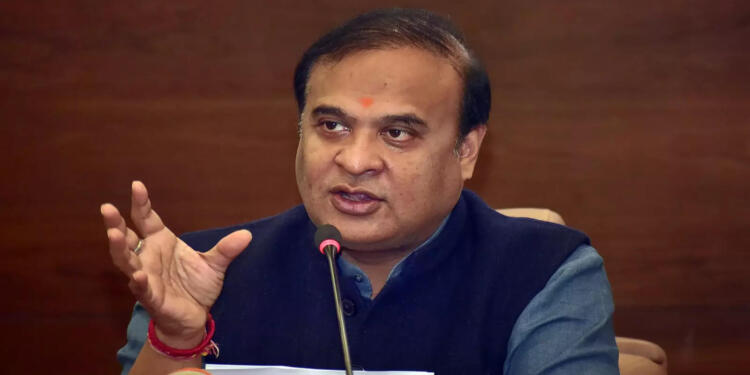Assam’s Chief Minister, Himant Biswa Sarma, recently disclosed an unexpected development regarding the Citizenship (Amendment) Act (CAA) in the state. Despite widespread anticipation, only eight individuals have sought citizenship under this new law. Himant further revealed that among these applicants, merely two have progressed to the interview stage with the relevant authorities. This revelation has sparked discussions across political circles and among citizens alike.
Background of CAA Implementation
The Central Government put the CAA into effect on March 11, 2024, by notifying the rules. This move came four years after Parliament passed the law to expedite citizenship for undocumented non-Muslim migrants from Pakistan, Bangladesh, and Afghanistan who entered India before December 31, 2014, and resided here for five years. The implementation of CAA has been a topic of intense debate and controversy since its inception.
Himant’s Outreach Efforts and Citizen Responses
Himant shared that his team conducted extensive outreach programs in the Barak valley, approaching numerous Hindu-Bengali families to encourage CAA applications. However, these efforts yielded surprising results. Many families declined, expressing their preference to address their citizenship status through the Foreigners Tribunal (FT) process. This unexpected response has led Himant and his administration to reassess their approach to citizenship matters in the state.
Reasons Behind Low CAA Applications
According to Himant, most Hindu-Bengali families not included in the final National Register of Citizens (NRC) draft claimed to possess necessary documents proving their Indian citizenship. They opted for the FT route rather than applying through the CAA. Legal experts noted that individuals declared foreigners by FTs could still apply under CAA if their nationality verdict is unfavorable.
Himant’s Stance on Foreigners Tribunal Cases
Addressing concerns about dropping FT cases against Hindu-Bengalis, Himant clarified that the government cannot dismiss any case. However, he advised applying through the CAA portal before initiating a case. Himant plans to request the Advocate General to highlight the CAA issue, allowing FTs to give applicants time to apply under the new law. This approach demonstrates Himant’s commitment to balancing legal procedures with the new citizenship options provided by CAA.
Impact on Anti-CAA Movement
Himant pointed out that the low number of applications has debunked opposition claims about millions of Bangladeshis gaining citizenship in Assam. He expressed surprise at the minimal response, given the intensity of the anti-CAA movement that resulted in the loss of five Assamese youths’ lives. This turn of events has led to a reevaluation of the anti-CAA stance and its implications for Assam’s social and political landscape.
Himant’s Approach to Recent Immigrants
In addressing concerns about recent immigrants, Himant stated that anyone entering Assam in 2015 or later would face deportation to their country of origin. This stance aligns with the Assam Accord, which stipulates that names of all foreigners arriving in the state on or after March 25, 1971, would be detected, removed from electoral rolls, and steps taken for their deportation.
NRC and Its Impact
The final NRC, released on August 31, 2019, excluded 1,906,657 people, while including 31,121,004 names out of 33,027,661 applicants. This extensive process has significantly impacted the citizenship landscape in Assam and continues to influence the implementation of CAA in the state.
Aadhaar Card Issues and Future Steps
Himant addressed concerns about blocked Aadhaar cards, explaining that approximately 900,000 cards were affected due to a timing clash with NRC update work. He assured that the state government is examining the list and will actively engage with the Central Government to resolve this issue. This problem highlights the complex interplay between various identification systems and citizenship processes in Assam.
Conclusion: A New Perspective on Citizenship in Assam
Himant’s revelations have shed new light on the CAA’s implementation in Assam, challenging previous assumptions and opening up new avenues for discussion on citizenship matters in the state. The surprisingly low number of CAA applications, coupled with the preference for existing legal routes, suggests a more nuanced situation than initially anticipated. As Assam navigates these complex citizenship issues, Himant’s approach and the government’s responses will play a crucial role in shaping the state’s demographic and political future.
ALSO READ: It was India, and the festival was Muharram, but the flags were of Palestine




















